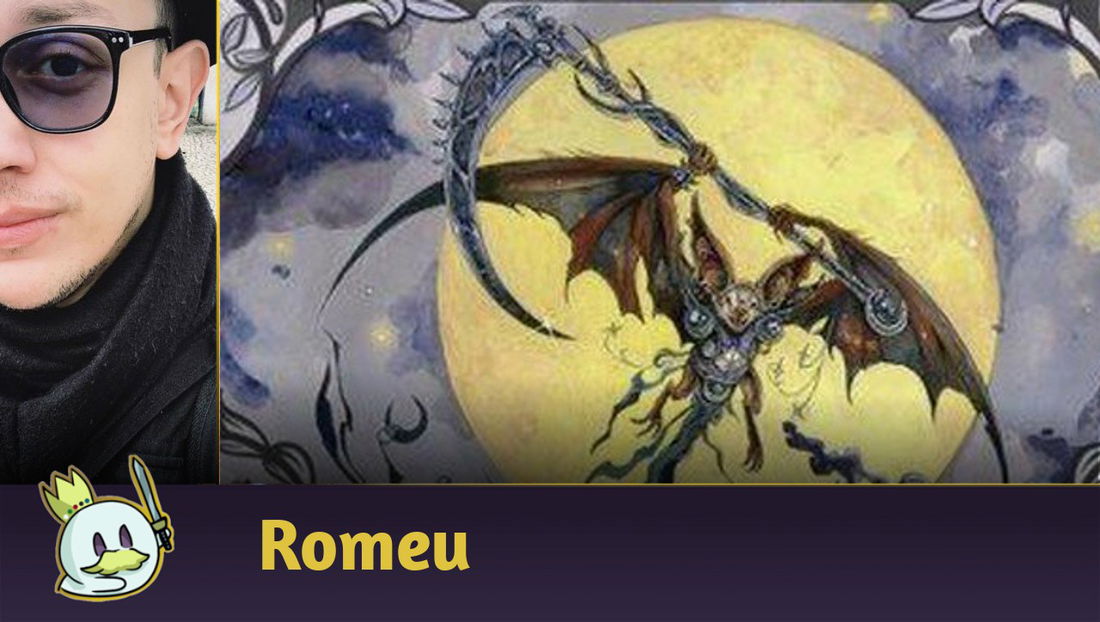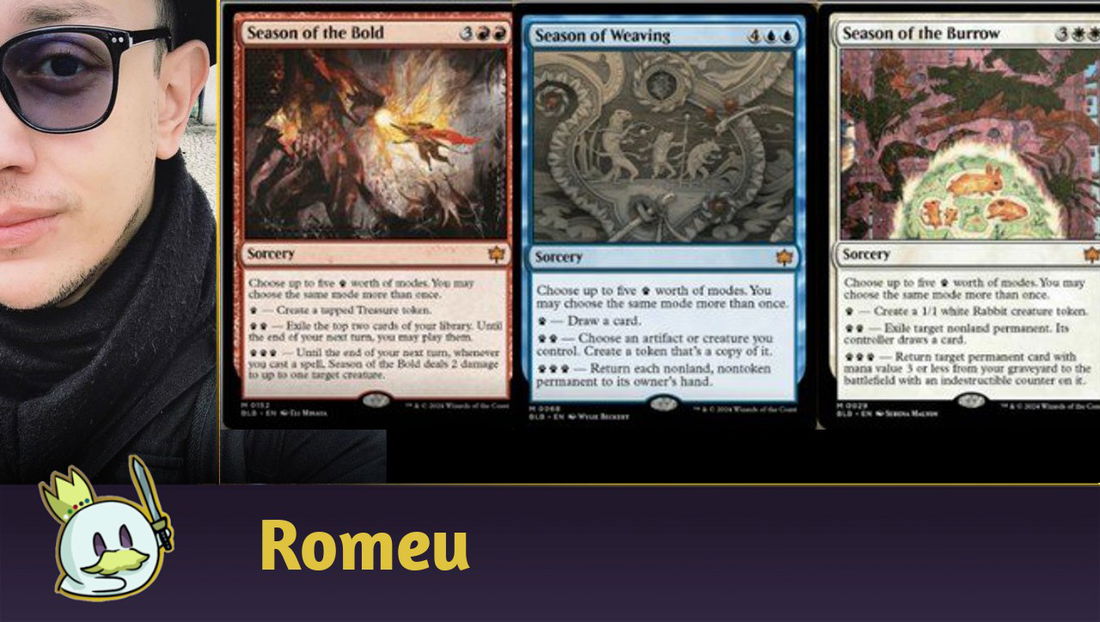Magic: The Gathering is over 30 years old, has more than 100 releases, and the number of cards available in the game now exceeds 28 thousand. Given such a long history and so many options, it is natural that some design mistakes occur and some cards, or even mechanics, prove to be much stronger in the game than in its team's planning, creating imbalances in the main formats and consequently leading to several bans.
In this article, we present the ten most broken mechanics in Magic, based on the impact they had on the game and how much they led to troublesome situations in the competitive scene!
The 10 Most Broken Mechanics in MTG
Honorable Mention: Partner

The Partner mechanic has proven to be extremely unbalanced in Commander if there are no restrictions on the Legendaries that can come together to form a deck, given that not only does their inclusion facilitate the creation of powerful decks of up to four colors but also allows for some synergies among its commanders, culminating in some of the strongest and most resilient archetypes in cEDH.
10 - Energy

Energy is categorized as a parasitic mechanic, that is, the number of cards that can interact with it and put it in check is notoriously low, and as Energy is a usable resource, its controller can accumulate quantities of them to use with their payoffs without worrying about losing them in any way.
In Standard, Energy starred in some of Kaladesh's problematic archetypes and led to the banning of Aetherworks Marvel and Attune with Aether and, now, Modern is also experiencing a new rise in mechanics with Modern Horizons 3, where Boros Energy has proven itself to be a new major competitor in the format with Guide of Souls and Amped Raptor while Jeskai Control has achieved notable results with Tune the Narrative, Galvanic Discharge and Wrath of the Skies - proving that all it takes is a small push for Energy to become relevant in the game again.
9 - Infect

By interacting with poison counters as a direct replacement for combat damage, Infect reduces the opponent's total life by half, and like other parasitic mechanics, there are few ways to interact directly with it, favoring decks that aim to increase the power of creatures with this ability and attack the opponent unimpeded for a combo-kill.
If that wasn't enough, cards like Blightsteel Colossus and Skithiryx, the Blight Dragon show Infect's other problems: on creatures with decent bodies and relevant abilities, it's not even necessary to create a deck around the mechanic, just put them into play somehow and establish the clock: Blightsteel Colossus is still one of Tinker's main targets in Vintage due to its potential to end the game with a single attack, and other cards with similar bodies would bring the same problem to other competitive formats.
8 - Initiative

Like Energy, Initiative is a parasitic mechanic, and one that interacts with progress in The Undercity dungeon, where each room generates significant value to its controller. In theory, this mechanic isn't much different from Monarch, but in practice, it proved to be much stronger and more problematic for formats where it was legal
The major problem with Initiative is that it rewards casting an enabler as early as possible to get the most out of each turn. Pauper decks began adopting Dark Ritual and Lotus Petal to cast creatures that trigger the dungeon while leaving a blocker ready to protect it, while Legacy was so dominated by archetypes based on this theme that White Plume Adventurer had to be banned from the format.
7 - Cascade

Cascade fits into one of Magic's most problematic patterns: free spells. With it, the card you cast will always bring another along with it, creating several archetypes around this ability since it was released in Alara Reborn and keeping Bloodbraid Elf on Modern's banned list for a few years.
However, the biggest problems with Cascade are the way it cheats costs: spells like Living End and Crashing Footfalls can be played for free, in addition to requiring two errata to no longer interact with modal cards like Beck // Call and Valki, God of Lies, where it created such an archetype powerful force that completely dominated Modern and Legacy in the few weeks it was legal.
6 - Affinity

Affinity has a long history of problems, leading to a series of bans in Mirrodin Standard and, later, the preventive ban of artifact lands in Modern to prevent the deck from being broken at the beginning of the format, in addition to starring six bans on Pauper caused by the interaction of Modern Horizons II's Bridges with inherently broken mechanics. You can read more about by clicking here.
The strength of Affinity lies in a recurring issue in this article: cost reduction to the point of making powerful spells be paid for with one or no mana, causing decks to have very explosive turns, making it difficult for the opponent to keep up with the race and forcing players to adopt very specific cards to respond to it, such as Stony Silence or Shatterstorm.
5 - Dredge

Dredge is another mechanic that can be considered parasitic, despite being highly interactive with graveyard hates like Leyline of the Void and Rest in Peace. Decks based on it basically play under their own rules instead of following the various pre-established steps in a Magic game.
By replacing each draw with a mill, Dredge can pull a high number of interactions with the graveyard into a single list, virtually transforming it into a “second hand” from which creatures like Narcomoeba and Prized Amalgam are put directly into play, Creeping Chill is basically played for free, and permanents like Bridge from Below and Ichorid are triggered, creating their own play style and with a rather troublesome history that led to Golgari Grave-Troll being banned twice from Modern.
4 - Delve

Like Affinity, Delve is a mechanic aimed at reducing costs, but unlike its predecessor, it requires almost no deckbuilding restrictions to work, therefore being the core of some of the most powerful cards in recent history.
In formats with Fetch Lands and/or cheap spells, it is easy to extract the most from your graveyard to pay the Delve cost, making Treasure Cruise and Dig Through Time potentially too dangerous for eternal formats, while the debate surrounding their legality in Pioneer resurfaces whenever Izzet Phoenix returns to the top of the Metagame.
Furthermore, spells like Consider or Thought Scour help to cast cards with Delve earlier, being essential in Pauper to play Gurmag Angler or in Modern for Murktide Regent. Modern also had a very problematic history with Hogaak, Arisen Necropolis, which took over the Metagame due to its ease of being cast as early as the second turn.
3 - Phyrexian Mana

Most free spells require specific resources: exiling cards from the hand, sacrificing creatures in play, returning lands to the hand, or some condition aimed at the opponent instead of its controller, but whenever the required resource doesn't involve a significant disadvantage, this spell has the potential to be overused by players, and Phyrexian Mana fit that mold by demanding only life while offering effects that essentially broke the color pie.
Mental Misstep is the best example of the problem surrounding Phyrexian Mana: its potential to be cast for just two life turned it into an almost ubiquitous card while it was legal in Legacy. After all, every deck wants to counter the opponent's one-drop, and being able to do so without mana and without needing to play blue would put the card in a notoriously dangerous position.
But it wasn't just Mental Misstep that caused problems for this reason: Gitaxian Probe gave too much information for free to its controller, allowing to see if it was possible to complete a combo at that moment or if it was necessary to play around some answers, in addition to greatly favoring interaction with cards like Cabal Therapy or Young Pyromancer for the mere cost of two life.
Today, Phyrexian Mana continues to be featured in competitive decks: Dismember and Mutagenic Growth are common to find in Modern, Legacy and even Pauper lists, while Wizards tried to “fix” the mechanic with Compleated , where it was possible to pay an alternative cost of two life for Planeswalkers, but at the cost of them coming into play with less loyalty.
2 - Storm

Storm is so iconic when we discuss broken mechanics that the very compass of the possibility of reviewing a theme or ability in Magic in the future is called Storm Scale. This ability copies the spell cast for each spell its controller has played before it, and has established archetypes since its release - and also motivated the creation of several cards aimed at stopping its combo.
The problem with Storm is that it's very easy to break: any combination of fast mana, cantrips and tutors is enough to start a streak, and when coupled with cost-reducing effects like Baral, Chief of Compliance or recursion of spells, such as Past in Flames or Yawgmoth's Will (considered by many to be the most broken card in Magic), Storm is practically unstoppable and demands very specific answers in order not to break the Metagame.
Cards like Force of Will are Legacy staples due to their potential to stop combos like Storm, creatures like Thalia, Guardian of Thraben are essential because they reduce the possibility of the opponent's spell sequencing - and when these options don't exist, as occurred in Pauper at the launch of Modern Horizons II, this mechanic can dominate the Metagame in a very short time and still have a lot of room for resilience against interactions.
1 - Companion

Storm may have named the scale that defines how broken a mechanic is, but the launch of the Companions in Ikoria: Lair of Behemoths and the changes they caused on its conception would have changed Magic forever.
In its original version, it was not necessary to pay the 
Wizards was forced to create an errata in the mechanics to create an alternative cost that would delay the casting of Companions and/or allow interacting with them with targeted discards, such as Thoughtseize. Still, Lurrus and Yorion proved too strong to the point of needing bans.
If these errata had not happened, Magic would have lived around Companions, possibly creating a new core in the game that would lead to the release of more of them in each set to create new deckbuilding experiences - which would be fun, but would leave a permanent mark that would forever change the way we build decks.
Despite all the controversy surrounding the other mechanics and abilities in this article, none of them would have had such a huge impact to change the game forever like Companion would have done if it hadn't suffered an errata. They have almost the same or even a greater impact than Fetch Lands for Magic, so we consider it the most broken mechanic in the game's history!
Conclusion
That's all for today.
If you have any questions, feel free to leave a comment.
Thanks for reading!













— Comentarios 0
, Reacciones 1
Se el primero en comentar